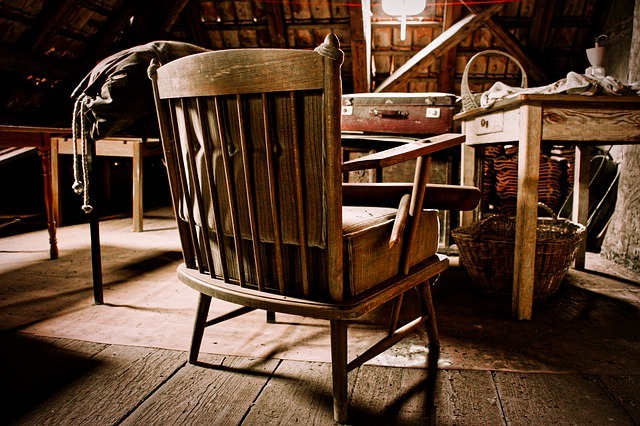
What to Store in Your Attic and Basement
Older homes often lack ample storage space, as do outdated apartments. Trying to maximize the capacity of your closets and shelves can be a struggle unless you happen to have an attic area or basement area to take advantage of. While these locations may seem the answer to your prayers for storage, that is the furthest from the truth because you should really only store certain types of household items in these areas or risk damage.
Pros and Cons of Attic and Basement Storage
The attic is often the first choice for many when it comes to storing excess belongings and holiday gear because it stays dry compared to the basement. On the other hand, unless there is central heating piped into this space, excess heat and cold temperatures throughout the year could cause damage to sensitive materials like photographs and wood.
Of course, if you don’t have an attic area, the basement is still perfectly fine to use. Just make sure to pack your items away in plastic bins to keep away the moisture and mildew. It’s also important to make every effort to avoid storing anything in an area that could become ruined if flooding or a sewage backup occurs. And just like an attic, be careful of items that are sensitive to heat or cold.
What to Store in a Basement or Attic
As you can see, the notion that anything can be stored in these spaces is actually subject to certain conditions and the type of items you plan to pack away. Below are typical items that are safe to store in either your attic or basement:
- Holiday and seasonal decorations
- Kitchenwares
- Project containers
- Travel items like hardcase suitcases
- Sports and outdoor equipment
When trying to decide if items can be stored safely, consider the following tips:
Use Protective Storage Options
Instead of cardboard and garbage bags, which pests and water can easily penetrate, use plastic storage containers.
Keep the Environment in Mind
Whether you choose the attic or the basement, without environmental management with central air, your belongings will experience humid heat and wet dampness. Don’t put sensitive items in these areas because of the damage these elements can cause.
Maintain Accessibility
Avoid creating stacks of containers that you have to move around like musical chairs to pick through. Store them neatly in rows.
What to Avoid Storing in Your Attic or Basement
Items Containing Delicate Fabrics
You may be saving your wedding dress for your daughter’s future big day, but how good will it look if it has been damaged by moths or mildew? Store delicate lace fabrics in your bedroom closet in a box away from light and dampness.
Cherished Photographs and Sensitive Documents
The materials that legal documentation and photographs consist of can suffer severe damage by the moist atmospheres found in your attic and basement. These should remain on the main floor of your home in a proper storage container or safe.
Flammable Items
Leftover paint and household cleaning chemicals should not be in areas that can get extremely hot or cold. Their flammable nature could cause even further damage to your home if they were to catch fire. Properly dispose of these items if you do not need them any time soon.
Wood and Leather Items
Wood is extremely porous and easily develops mold, cracks, and warping when exposed to high temperatures and damp environs. Leather is much the same in that it cracks when kept in significantly hot conditions. It also can become mildewed when left in dark, damp areas.
Old Electronics
If you aren’t ready to toss out that old record player, avoid leaving it in your attic or basement. Store electronics in areas that are climate-controlled because extreme temperatures, dust, and mildew, can corrode delicate wiring. Keep these in your bedroom closet, utility room, or even under your bed to prevent damage.
Throw Away Items You Don’t Need Any Longer
This is the most important piece of advice to keep in mind when packing up unused items for storage. If you don’t need it any longer and it will be years before someone else may want it, you should probably go ahead and dispose of it. Learning when to let go of unwanted belongings and supplies is essential to keep clutter under control in your home. Just because it isn’t in the main living areas of your house anymore doesn’t mean you aren’t cluttered! You just moved it all to a different area.
Rent a Residential Friendly Dumpster and Stop the Clutter
Commit to properly store your stuff and stop holding onto that which you don’t need anymore. Rent a residential friendly dumpster from Bin There Dump That and begin practicing better storage habits. This is an affordable solution that is easy to set up and simple to use.
Our company provides full-service dumpster rental services, and we get it delivered to doorstep fast. Often, we can get one of our handy bins to you on the same day or within 24 hours! Call our Northern Atlanta area office at (770) 932-2838 or contact us online for more information. Don’t forget to check out our blog for additional tips and tricks to maximize the benefits of your dumpster rental experience!
Remember to use Bin There Dump That for all your dumpster needs.
Related Blog Posts
- Revive Your Home for Spring with This Spring Home Maintenance Checklist
- 10 New Home Trends That Will Make Your Friends Jealous
- How Our Dumpsters Support Realtors and Property Managers: A Comprehensive Guide
- 12 Jaw-Dropping Clutter Statistics That Will Make You Want to Declutter Today!
- Unlocking Space: The Complete Guide on Pocket Door Installation
- Step by Step Guide on How to Install Carpet Like a Pro


